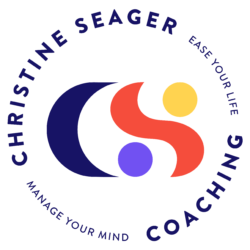It’s almost summer.
The sun’s out longer, school’s winding down, and vacations are popping up on your coworkers’ schedules.
But you know the truth:
The hospital doesn’t run on sunshine and sandals.
You’re still charting, staffing, helping, covering. Still managing your own schedule around everyone PTO.
And if you’re also a parent, partner, daughter, or dog-mom?
You’re trying to plan camps, coordinate pickups, and remember who likes mayo and who doesn’t in the lunch rotation.
It’s a lot.
And even though the pace may change, the mental load rarely does.
You’re Carrying More Than What’s On the Clock
You know this, but it’s worth naming:
The work isn’t just your job.
It’s the mental checklist that never ends.
- “Did I chart that?”
- “Did I sign up for the CPR renewal?”
- “I should probably schedule my own mammogram at some point…”
- “Don’t forget to bring snacks for the end-of-year party.”
- “I told them I’d pick up an extra shift—what was I thinking?”
By the time you get to your off days, you’re already behind on everything else.
Even your time off comes with an asterisk:
Now you can finally catch up on all the other things you didn’t do while working.
No wonder so many of us feel exhausted before summer even starts.
Summer’s Supposed to Feel Lighter. So Why Doesn’t It?
Here’s a thought that might surprise you:
It’s not necessarily your circumstances making life feel heavy.
It’s how you’re carrying them.
The same job, same family, same calendar—one person can feel energized and clear, and another can feel buried and resentful.
And often?
That’s not about being stronger or more organized.
It’s about how you’re thinking about everything.
The Real Weight of the Mental Load
Mental load is more than a to-do list.
It’s the pressure we put on ourselves to get it all right.
To remember, plan, prevent, fix, help, manage, do.
And it’s invisible—but you feel it everywhere:
- You snap at your partner even though you don’t want to.
- You fall asleep scrolling instead of resting.
- You dread your next shift, not because of the job—but because you’re already tired.
- You cancel the thing you were looking forward to because you “just can’t today.”
It’s not your fault.
You were never taught how to manage your mind—only your schedule.
The Good News: You Can Carry It Differently
Here’s where things shift.
You don’t have to drop everything.
You don’t have to overhaul your life.
And you don’t have to wait until fall to start feeling better.
You just need new tools. A new way of seeing things.
And someone to walk alongside you while you practice.
That’s what coaching can offer.
Not more to do—but more clarity.
More peace.
More energy.
More you—the version that doesn’t feel like she’s always holding her breath.
What Could Change If You Weren’t So Mentally Tired?
Imagine:
- Getting through your shift without constantly self-correcting or second-guessing.
- Going home and actually relaxing—without guilt.
- Having a real plan for your own goals (not just your kids’ summer schedules).
- Feeling like you’re driving your life, not being dragged behind it.
This is possible.
Not someday—this summer.
Ready to Carry It Differently?
If you’re an employee at Logan Health, you already have access to coaching with me at no cost to you. Click here to schedule a session.
(Yes, really.)
And if you’re not part of Logan? I offer private coaching, too—click here to book a call to talk about it.
We’ll work together to lighten the mental load—and design a life you actually want to show up for.

